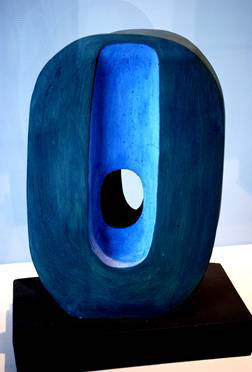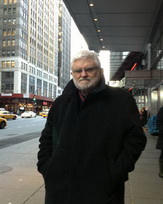Depending
on where we stand, we get a clear view of events or a somewhat distorted,
obstructed, picture. So we move to a better vantage point, anxious to improve
our position. It works both ways of course, for sometimes not only do we wish to
see the crowd, but the crowd wants to catch a glimpse of us, who is this talking
to us? That surely was the case in the Gospel story of Jesus taking to a boat
just off the shore in order to talk to a large gathering who had come to hear
him.
In
any exchange therefore, the ability to be heard always depends on good delivery
and an openness and ability to listen.
The often used word, dialogue, is not just the dialogue of words but also of
relationships. In recent years, groups have been formed in various parts of the
world seeking dialogue within the Church, bringing together people whose
commitment is faithful, but who also recognise real problems that cannot, must
not, be ignored.
This is being shown
to us in abundance by Francis, for our Bishop in
Rome
dialogues with his whole being,
sharing love, offering comfort, being joyful with the company he shares at a
particular moment. It has been
reported that he spent twenty minutes on the telephone with the grieving parents
of the American journalist James Foley, so cruelly murdered in
Northern Iraq
recently. Compassion demands a
generosity of time, a willingness to be there when it matters most.
The
distant view from where we are goes, of course, in two directions as we look
back on our journey, life events, people we chanced by and the places where we
have lived out our years; and then the look forward to where we might be
heading. The first aspect is known, we have been there and although with age our
memory might be less than accurate, the broad outline is intact. But where might
we be heading? That is an altogether different matter and sometimes we are
hesitant to make a move, fearful of the outcome. The comfort zone we are in is
more attractive for its security than an uncertain alternative. In this 100th
year of memory, 2014, we find ourselves in a very insecure and dangerous world,
where conflict flares suddenly in different places and its consequences are
screened nightly on our televisions across the globe.
I am reminded of Dylan Thomasís poem on the death of
his father.
Do not go gentle into that
good night,
Old age should burn and rave at close of day;
Rage, rage against the dying of the light.
By saying nothing, by doing nothing, we can easily become complicit in the
consequences of our inaction. How far Thomas is expressing a Christian ethic is
debatable but his voice of protest is an understandable alternative to silent
acquiescence.
Yet,
wherever Francis sets foot, he is welcomed with enthusiasm, for Christians and
non-Christians alike recognise his sincerity. His voice of calm is needed now,
more than ever.
Not
only is there tumult among nations but there is within the Church a concern
about our future, how will the Christian presence continue to thrive in changing
circumstances? The heading picture is of a piece by the English sculptor,
Barbara Hepworth, her Pierced Form allows the viewer to look through to what has
been, now partly in shadow, a small, narrow passageway that has shaped the
direction of our journey. Or, it could be viewed as a small portal, access to
our future path, again shadowed for being unknown, if we have the courage to
take it.
And
courage takes us back to our starting point, the need for dialogue, for honest
appraisal of where we presently find ourselves, both individually and
collectively. Yes, of course, look back along the road of our journey, but still
do not be afraid to look forward to where the future challenge may be radically
different and demand from each one of us a new perspective.
END
---------------

